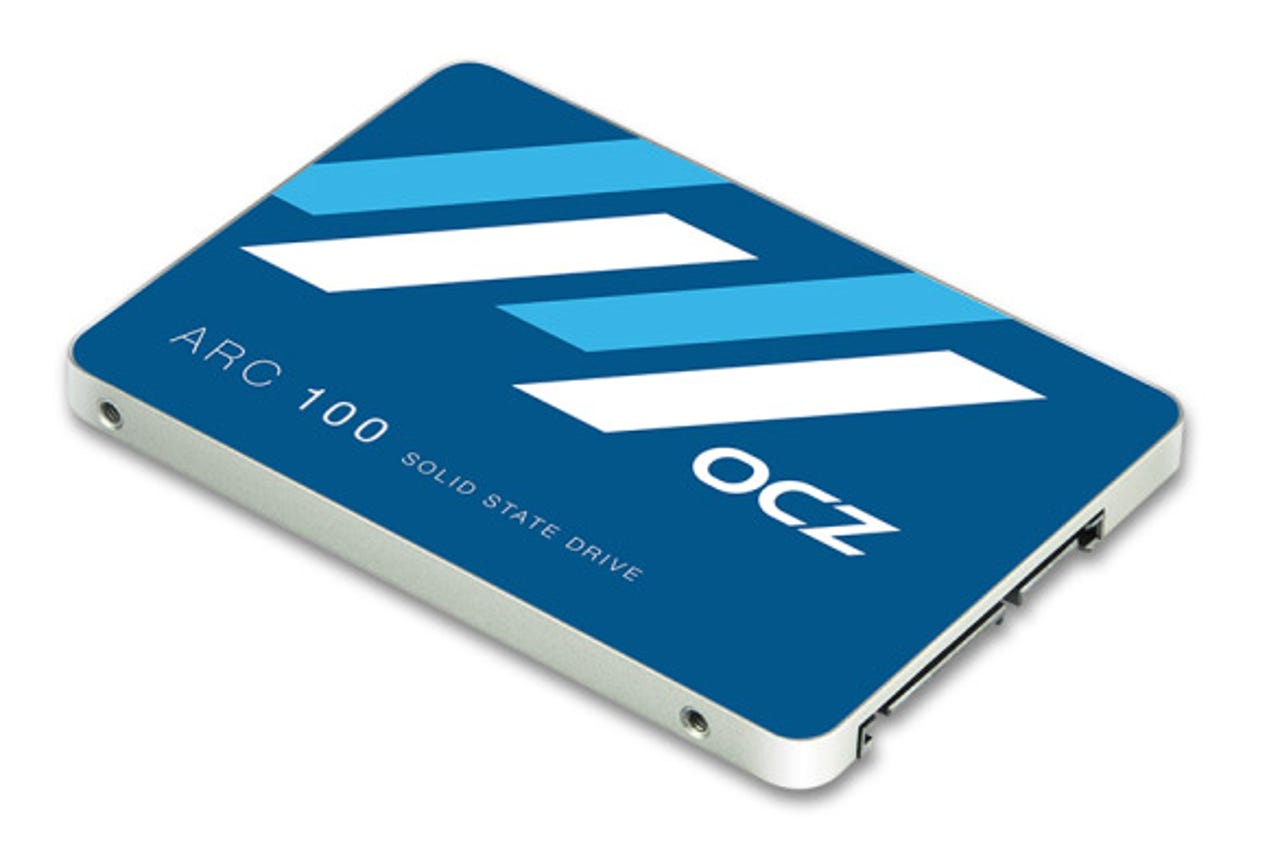OCZ delivers affordable ARC 100 SSD lineup


We're still not at the point where solid-state drives are nose-to-nose in terms of price with traditional hard drives, but strides have been made since the days when SSDs cost many dollars per gigabyte. A case in point is the latest line of drives from OCZ, which has kept its brand name even after Toshiba bought the company several months ago.
Tech Pro Research
Since the acquisition, OCZ has introduced enterprise-oriented drives like the Z-Drive 4500 and the RevoDrive 350. With the ARC 100 family of 2.5-inch drives, it is targeting the value segment of the consumer market, with starting prices at just $74.99. For that amount, you can get a 120GB drive, while a 240GB version is $119.99 and the 480GB capacity runs $239.99.
While you won't get blazing-fast performance for that price, you will get solid speeds from the ARC 100 lineup. For the cheapest drive, OCZ claims maximum sequential read speeds of 475MB/s and writes of 395MB/s; for the 120GB model, read speeds are bumped to 480MB/s and writes jump to 430MB/s; and for the 240GB version, read speeds nudge higher to 490MB/s and writes leap to 450MB/s. All three flavors can handle random 4KB reads of 75,000 IOPS and random 4KB writes of 80,000 IOPS. Though the ARC 100 drives are rated at up to 20GB of daily writes, they only come with a three-year warranty.
The SSDs make use of parent company Toshiba's latest A19nm NAND flash and OCZ's own Barefoot 3 controller. It also supports 256-bit AES-compliant encryption. If a lot of those specs sound familiar, it may be that these drives will be rebadged as part of AMD's rumored Radeon family of SSDs due in the near future.
Our sister site CNET has already put the new ARC 100 drives through its testing and found that they provide good performance for the low price, making them an ideal upgrade for your desktop. Check out the full review here.